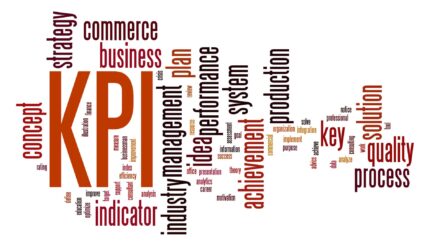First things first – what’s the difference?
If you look just at the different types of business coach available, the range in the choice is huge. Then, when you add in business consultants, advisors, and mentors those choices can become a blur.
Like many terms in business, they tend to ‘bleed’ into each other, but in this post, I’ll give you a starting point by differentiating between the two main categories: business coaches and consultants.
A basic definition of a consultant is this: a person who provides professional or expert advice in a particular or specific area.
And the best definition I’ve come across for a business coach: A coach is a catalyst for change; challenging your beliefs and approach in order to unlock your potential.
These contain 2 subtle but crucial differences.
The first distinction is that consultants tend to specialise: in an industry, type of business or specific area of business. Whereas business coaches are generalists.
The more subtle difference is that typically a consultant is there to proactively advise – to give you their ‘take’ or solution to a challenge. Given they tend to specialise, these challenges will be ones they have likely faced before and they’ll be sharing the solution that worked for them.
A coach believes that true power (and growth) comes from acting with agency and autonomy – and that involves thinking for yourself.
Therefore, the idea is not to tell you what to do (where possible) but rather to give you a greater sense of perspective and clarity – so that you can take ownership of the problem and the solution. Coaches refer to this as ‘holding up the mirror’.
That’s why coaching is question-led rather than statement-led.
Consultancy – the Pros
Done well, a consultant will come in, appraise your business, your ambitions, your skills, budget and limitations – and give you the perfect solution. They might then implement it for you to operate going forward. They bring their direct experiences of situations similar or identical to yours to cut straight to the answer thus speeding up the process towards results.
This can mean that as the business owner, you get to keep your mind focussed on the rest of the business, having an expert on hand to tackle a specific challenge for you.
It can feel like you’ve taken a massive short-cut and who doesn’t like that feeling?
Consultancy – the Cons
Done badly, it can feel like watching someone else parent your kids in a way you just flat-out disagree with. It can feel like ceding control (abdicating) vs being in the driving seat (delegating) and wearing somebody else’s shoes in the process.
Just because a solution worked in someone else’s business does not mean it’s going to work for you. And deep down you’ll be aware of this.
There is also a psychological impact.
Being told the answer by ‘the expert’ can be a great short-cut but it can also leave you feeling dependent rather than empowered and too much of that can lead to a nagging feeling of resentment.
Whether it goes well or badly, what have you actually learned about business to enable you to make better choices in the future?
Business Coaching – the Cons
The job of a business coach is to challenge your thinking; to illuminate the core of the problem, the options and the potential solutions. For a variety of reasons, the judicious use of questions is one of the best ways to tackle this.
Done badly, this might feel like a run-in with a dodgy therapist where every question is answered with a question and you’re screaming in your head: ‘just tell me the b****y answer!!’
Client: My team don’t perform when I’m out of sight. What do you think is wrong?
Coach: Interesting. What do you think is wrong?
Because coaching is by essence, question-based it can be a great, awful or mediocre experience because questions can be great, awful or mediocre.
Business Coaching – the Pros
If an inane question is bound to irritate you, a great question can get you to stop in your tracks and look at something from a completely different perspective. This shift in viewpoint can open up an entirely new range of opportunities and options – as well as a surge of energy to see that idea through to completion.
The great side-effect is that you will feel like it’s your idea – or at the least that you’ve been an active collaborator in dreaming it up – which increases the chances of it working and grows your confidence as a business owner.
There’s a saying that to be a great coach you need to have the makings of a pretty good consultant.
In other words, it’s hard to ask a great question if you don’t have a clue what the answer is.
A good coach will of course have their own system or a methodology – a proven way of getting results.
A great coach will help you refine and adapt it to make it your own.
So – what’s the conclusion?
By now, you’ll have twigged that this is not a case of better or worse.
Any decent business coach, consultant, advisor or mentor will want the best for you and your business and would believe that their clients will get a return on their investment in fees.
In the broadest sense, my take is that:
- Consultants can be great for specific projects and therefore are likely to be on a fixed / short term contract.
- Coaches are best when they can really get to know you and your patterns of behaviour – and therefore are more of a long-term choice.
There is no right or wrong solution.
There is simply ‘where you are now’, ‘where you want to be in the future’ – and your gut instinct about which of the available resources will get you from A to B the quickest, with the fewest mistakes and in the most enjoyable way.
Speak with a few, focus on the desired outcomes, trust your gut.
And remember one of the truisms of business: the commitment to making a decision work is often more important than what decision you make. So, once you’ve decided – make it work for you.
Still unsure if business coaching would work for you? Check out my latest blog here.





